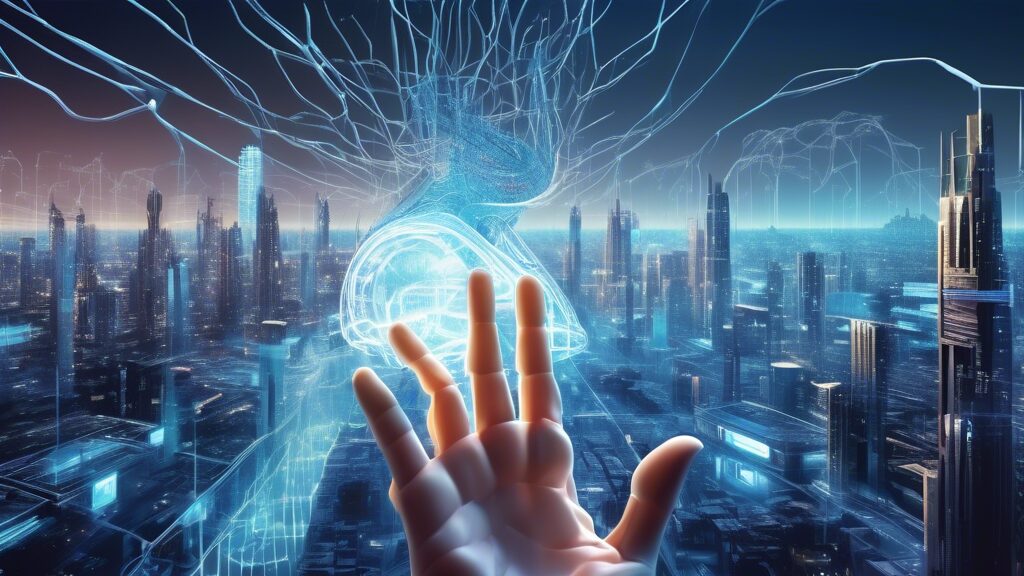The Rise of Artificial Intelligence
Artificial intelligence (AI) has transitioned from science fiction to reality, rapidly evolving from a theoretical concept to a transformative technology shaping numerous aspects of our lives. From voice assistants like Siri and Alexa to self-driving cars and sophisticated algorithms powering social media feeds, AI is no longer a futuristic dream; it’s here, and it’s changing the world as we know it.
Understanding Artificial Intelligence
At its core, AI refers to the development of computer systems capable of performing tasks that typically require human intelligence, such as learning, problem-solving, and decision-making. These systems leverage complex algorithms and vast datasets to analyze patterns, make predictions, and continuously improve their performance over time.
Types of Artificial Intelligence
AI encompasses a wide range of technologies, each with its own capabilities and applications:
- Machine Learning: Enables systems to learn from data without explicit programming, allowing them to adapt and improve their performance over time.
- Deep Learning: A subset of machine learning inspired by the human brain’s neural networks, capable of handling complex tasks like image and speech recognition.
- Natural Language Processing (NLP): Focuses on enabling computers to understand, interpret, and generate human language, powering applications like chatbots and machine translation.
- Computer Vision: Allows machines to see and interpret visual information, with applications ranging from facial recognition to medical imaging analysis.
- Robotics: Combines AI with physical robots to automate tasks and perform complex actions in the real world.
AI’s Impact on Various Industries
The influence of AI extends across numerous sectors, revolutionizing industries and creating new possibilities:
Healthcare
AI is transforming healthcare by improving diagnosis accuracy, accelerating drug discovery, and enabling personalized treatment plans. AI-powered systems can analyze medical images, predict patient outcomes, and assist with robotic surgery, leading to better patient care and more efficient healthcare delivery.
Finance
The financial industry utilizes AI for fraud detection, algorithmic trading, and risk management. AI-driven chatbots provide customer support, while machine learning algorithms analyze market trends to make informed investment decisions.
Transportation
Self-driving cars are perhaps the most prominent example of AI in transportation. AI is also used to optimize traffic flow, predict maintenance needs, and enhance safety systems in vehicles and transportation infrastructure.
Manufacturing
AI-powered robots are automating tasks in factories, increasing efficiency and productivity. AI systems also optimize supply chains, predict equipment failures, and improve quality control processes.
Customer Service
AI-powered chatbots and virtual assistants provide 24/7 customer support, answer questions, and resolve issues, enhancing customer satisfaction and reducing the workload on human agents.
Education
AI personalizes learning experiences by adapting to individual student needs and providing targeted feedback. AI tutors and language learning apps offer interactive and engaging educational experiences.
The Future of AI: Opportunities and Challenges
As AI continues to evolve, it presents both exciting opportunities and significant challenges.
Opportunities
AI has the potential to address global challenges such as climate change, poverty, and disease. It can drive innovation, create new jobs, and improve our quality of life. AI-powered systems can automate mundane tasks, freeing up human creativity and potential for more meaningful work.
Challenges
Ethical concerns surrounding AI, such as bias in algorithms and job displacement due to automation, need to be addressed. Ensuring responsible AI development and implementation is crucial to mitigate risks and ensure equitable access to the benefits of AI technology.
Conclusion
AI is shaping the future at an unprecedented pace, transforming industries and redefining our interactions with technology. As AI continues to evolve, it is essential to embrace its potential while addressing the challenges it presents. By harnessing the power of AI responsibly, we can create a future that is more efficient, equitable, and prosperous for all.


